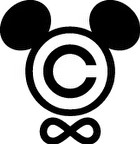So we seem to be in a world where workers are encouraged to clock on psychologically 24/7 and where the line between work and play is increasingly blurred. And as we all know it no coincidence that this immersion in work is happening as technology revolutionises the world.
I was under the impression that if you want to win in the corporate world it’s a good idea not to switch off.
While this for some can paint a pretty dim picture on what is now expected of us due the evolution of media and take home “personal space”. It has always been a given that we take work home sometimes, just even more so now that the internet and the mobile phone make it so easy. The problem is that the distinction between time on and off the job is disappearing and leading to the sense that many people are on the job even when not physically present in the office.
The way some of my colleges and friends act when they announce that they have to reply to a “important email” it appears that to work long hours both in the office or at home is almost like a badge of honour in a society that reveres achievement and susses.
HOT TIP: Just to make sure your boss knows how enthusiastic and dedicated you are to your work always CC them on any emails you may send after 6pm or on the weekend...it will do wonders for your rep!
The blurred lines also work the other way…technology also allows one to bring play to work. In the office that I work its fine to mix a bit of pleasure between replying to emails and forecasting, as long as you are productive and up to date with your work. It is not unusual to walk past a cubical and see Facebook up on a screen and a group of 3 or four participating in some online shopping in the next.
All in all the blurred line is not so hazy and like anything it’s about taking the good with the bad. People and society adapt to what is expected of them. At the end of the day if it all gets a little too much, there’s always the off button.



